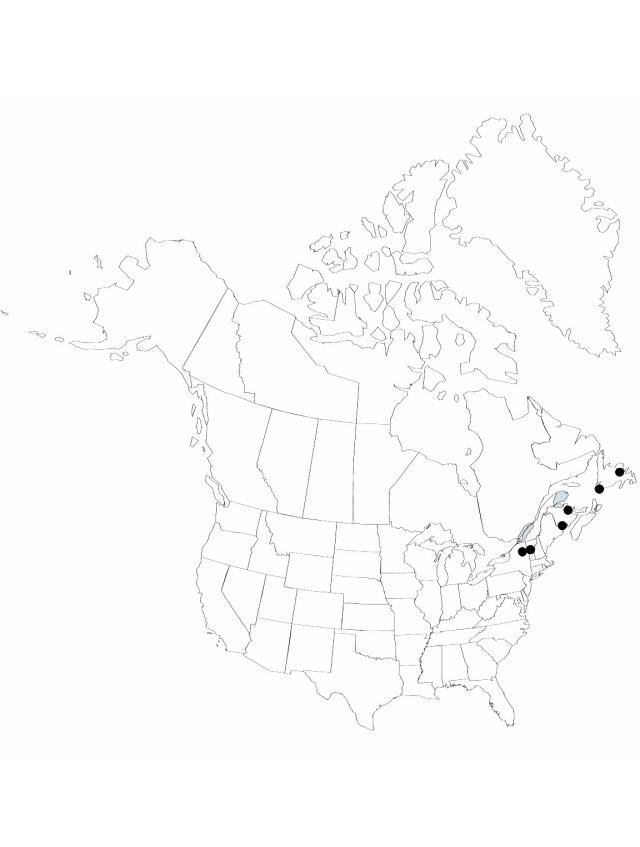Luzula pallidula
Taxon 39: 110. 1990.
Rhizomes thickened. Culms cespitose, 9–35 cm. Leaves: basal leaves 6–11.5 cm × 1.5–4 mm, apex not callous, sparingly ciliate. Inflorescences umbellate-paniculate; glomerules 4–30 (each with 9–24 flowers), central glomerules sessile or nearly sessile, cylindric, 6–10 × 4 mm; branches straight, erect, to 3 cm; proximal inflorescence bract conspicuous, leaflike, equal to much longer than inflorescence; bracts clear, sometimes variegated with purple; bracteole margins dentate to lacerate. Flowers: tepals clear to straw-colored throughout or centers brown with clear margins and apex, 1.5–2.6 mm; outer whorl exceeding inner whorl, (outer whorl apex awned); anthers equaling to 1.5 times filament length. Capsules light or dark reddish, shining, spheric, usually equaling inner tepal whorl. Seeds translucent brown, ellipsoid, 0.7–1 mm; caruncle 0.2–0.3 mm. 2n = 12.
Phenology: Flowering and fruiting early–late summer.
Habitat: Moist to wet woods, grassy places, and clearings on rocky places and barrens
Elevation: 0–1000 m
Distribution

Introduced; N.B., Nfld. and Labr. (Nfld.), Que., N.Y., Vt., Eurasia.
Discussion
Basal leaves of Luzula pallidula are sparingly ciliate.
For discussion of the change of the widely known name for this species, see J. Kirschner (1990).
Selected References
None.